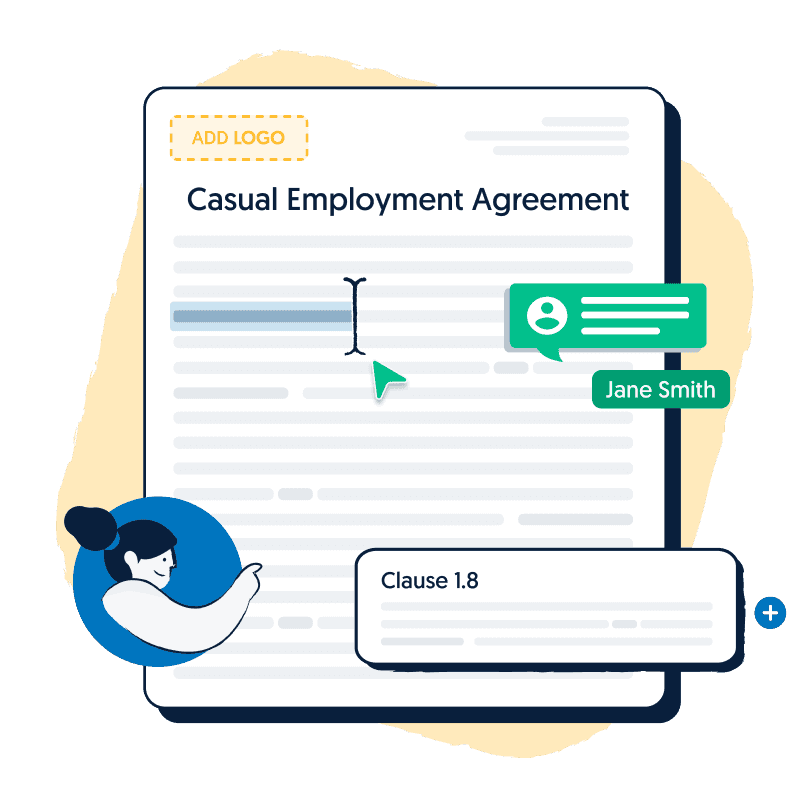Gianluca is a litigation and dispute resolution lawyer based in Sydney. Gianluca has been involved in a wide range of matters for commercial clients including major pharmaceutical and diagnostics companies. He has experience in the settlement of a number of class actions, as well as advising on various settlement schemes. Gianluca acts for clients in individual litigated product liability disputes concerning a range of medical devices and consumer products. Gianluca was formerly a LegalTech Intern at Lawpath.
When it comes to employment, there are generally four types including full time, part time, casual and fixed-term. Each type of employment carries with it different entitlements and different payment rates. One of the most important employment entitlements are leave provisions, where an employee can take time off whilst still being employed. Leave can be paid or unpaid. More specifically, sick leave is where an employee is entitled to take time off due to illness. In this article, we’ll explain how sick leave entitlements work for casual employees.
Sick leave
When an employee is too sick to come into work, they can take sick leave. You can take sick leave for illness or injury, and to care for a sick family member. Employees may be required to provide a medical certificate for sick leave to be approved.
Full-time and part-time employees are entitled to 10 days of paid sick leave per year of employment. Sick leave carries over, meaning that unused days from a previous year will go into the following year’s leave balance.
Casual employment
Casual employment is employment which is irregular, uncertain, unpredictable and intermittent. This type of employment is not intended to be permanent. For example, casual employees can be terminated without notice, however for full time employees the standard notice period is at least 2 weeks. This also extends to leave entitlements, as casual employees are not entitled to any type of paid leave.
Unlike full time employment, casual employment means the amount you work may vary. For example, a casual employee can work 4 shifts one week, but only 1 the next. Due to this, you are not entitled to paid sick or annual leave. The Australian Fair Work Commission defines a “casual” as someone that:
- Has no guaranteed hours of work
- Usually works irregular hours
- Has the ability to terminate employment without notice, unless there is no contracted notice period
However, unlike other types of employment, employers pay a “casual loading” on top of your base rate of pay. This payment is a substitute for the entitlements that full time and part time employees have. As a result, you get a higher rate of pay to the equivalent full-time or part-time employee. However, you do not get any benefits such as sick leave. A casual is quite attractive for a prospective employer as they do not have to worry about entitlements such as rights to hours, notice periods and termination. Furthermore, an employer can claim an offset for the extra “loading” that they pay to casuals come tax time pursuant to the Fair Work Amendment (Casual Loading Offset) Regulations 2018.

Get your Casual Employment Agreement now for free.
Hire casual employees in any industry. This Employment Agreement (Casual) is essential when hiring new employees for your business.
What type of leave can a casual take?
A casual can take up to:
- Two days unpaid carer’s leave
- Two days unpaid compassionate leave
- Five days unpaid family and domestic leave in a twelve-month period
- Unpaid community service leave, from time to time
Are you really a casual?
Interestingly, there has been a trend in Australian case law towards distinguishing a casual employment relationship if it is not really casual in nature. Basically, if you have “regular and systematic” casual employment you may not be a casual per se, but rather be another type of employee. If so, you have other entitlements such as sick leave and annual leave. Casual employees who have been employed in their position for more than 12 months have a legal right to request that their contract be made permanent. Employers can only refuse this request if there is a strong business case to do so.
Case law
In Bayley v Temples and Kneen-McDaid v Jaycorp Pty Ltd T/A Homestart, contracted casuals were found to be regular employees. This was because they had a periodic employment relationship, regardless of their inconsistent hours. In these cases, both employees’ were claiming payment of their entitlements to annual leave. Of course, each case needs to be determined on their own individual circumstances. If you have any questions about your employment, we recommend that you speak to an employment lawyer.
Finally
Permanent and casual employees have different entitlements in the workplace. Although a casual employee may receive a higher hourly rate of pay, they cannot take paid sick leave. If a casual employee is sick, in most cases they have to go without pay. However, there may be some exceptions such as in the case of a global pandemic or other serious illness. If you have further questions on leave entitlements, it may be worth getting in touch with an employment lawyer.

Get a fixed-fee quote from Australia's largest lawyer marketplace.






